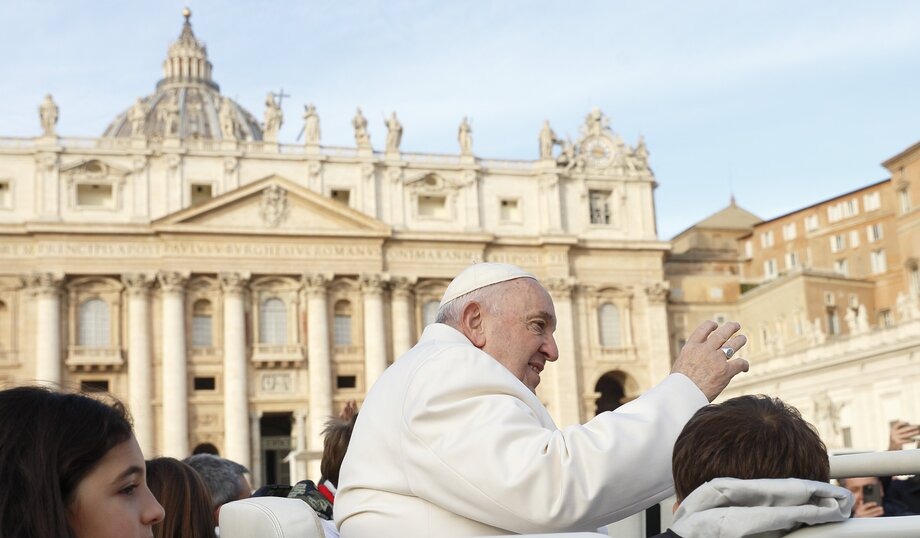In spite of the cold, Pope Francis returned today to the foot of the St. Peter's Basilica to reflect on the letter of St. Paul to the Philippians. He began the catechesis by posing a question: "How to recognize true comfort?"
In the "Spiritual Exercises". from Saint Ignatius of LoyolaThe Pope points out that we can find some keys to be able to analyze this consolation, essential for discernment. One of these keys is found in the analysis of our thoughts. Following St. Ignatius, Francis indicated that we must notice the discourse of our thoughts, the beginning, the means and the end, trying to discover if they are directed towards the good or if, on the contrary, they take away peace and calm.
We cannot use good inclinations, such as the desire for prayer, to evade our responsibilities; that is not a thought born of good, says the Pope. "The prayer it is not an escape from one's own tasks, on the contrary, it is a help to achieve the good that we are called to achieve, here and now"..
"It is necessary to follow the path of good feelings, of consolation."In this way, we avoid the temptations of the devil, "that exists"Francisco states emphatically. "The style of the demon is to present itself in a sly, disguised way, part of what is closest to our heart and then attracts us to itself, little by little. Evil enters by stealth, without the person realizing it.".
The Holy Father encourages "patient and indispensable examination of the truth and the origin of one's thoughts".. The Pope insists on this analysis of the hearts and affirms that "the more we know ourselves, the more we realize where the evil spirit enters in.".
Francis spoke about the individual examination of conscience that all Christians should make in the evening, to see "what has happened in the heart". Says the Pope that, "realizing what is happening is important, it is a sign that God's grace is at work in us, helping us to grow in freedom and in conscience."
The Pope's reflection concluded by inviting us, once again, to advance in our self-understanding, making an examination of conscience, and knowing that discernment, in fact, does not focus simply on the good or on the highest possible good, but on what is right for me here and now"..









